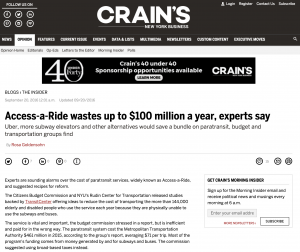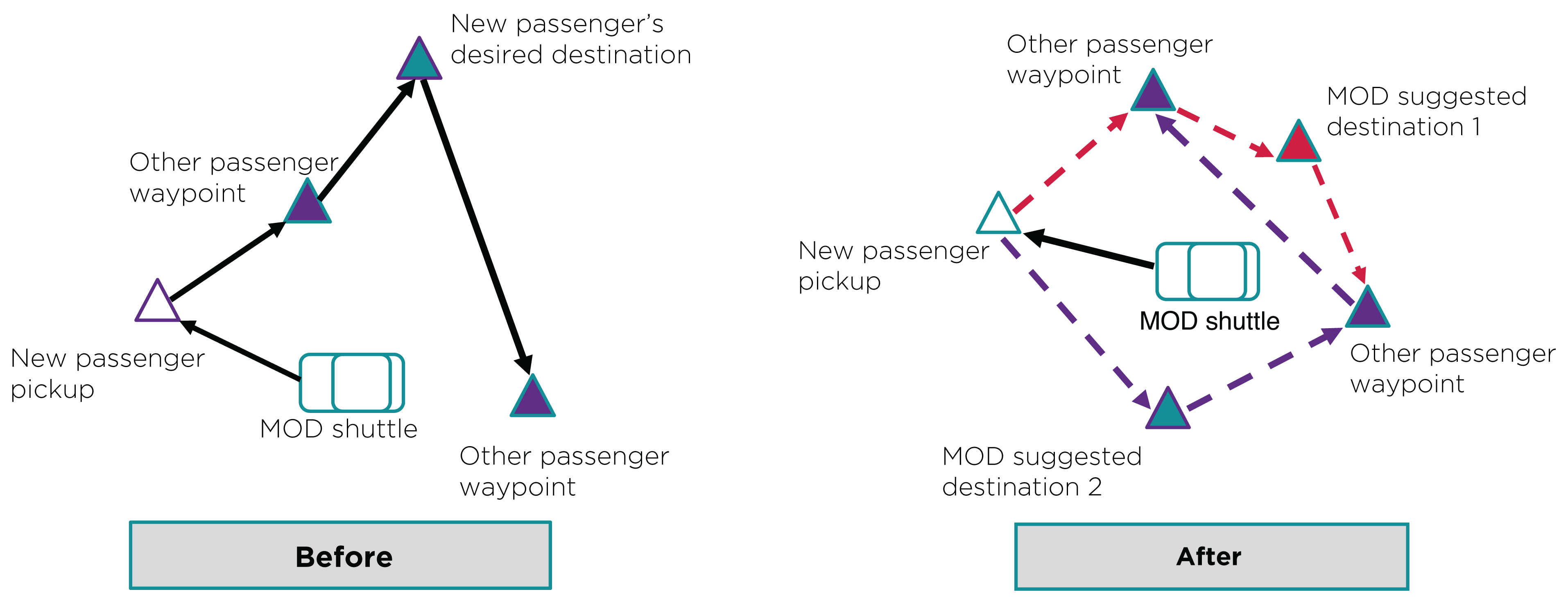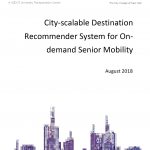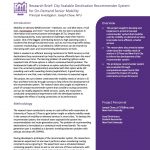City-scalable Destination Recommender System for On-demand Senior Mobility
Overview
This project aims to improve the efficiency of mobility-on-demand services with the help of machine learning. The goal is to create an algorithm that public paratransit services, private rideshare companies, and future autonomous vehicle fleets could use to improve operations and lower costs.
The research is focused on embedding a type of algorithm called a recommender system – like the technology Amazon uses to suggest products, or that Netflix uses to recommend movies – into a mobility-on-demand service. A user could input the type of destination they’re looking for – like a movie theater, a type of restaurant, or grocery store – and the app would suggest specific places. The suggestions would balance the user’s preferences with the most efficient options for the service, improving efficiency, and reducing operating costs.
Incorporating a recommender system into mobility-on-demand services has the potential to provide benefits for both the service providers and the users by:
- Mitigating costs that arise due to unplanned disruptions or schedule cancellations by recommending alternative options close by.
- Providing information to users who might have limited access to information, such as the elderly, about new establishments or establishments that are beyond their typical neighborhoods.
- Learning from users’ feedback about destinations to provide improved recommendations in the future.
The project team is conducting computational experiments and constructing simulations to see how well this kind of recommender system can work in different city structures. The challenge of applying a recommender system to mobility services is that travel is highly contextual – the system has to take into account the origins, destinations, and preferences of multiple passengers to recommend a location that is cost-efficient for the service and satisfactory to the user. The researchers are investigating how difficult it is for these algorithms to learn efficiently given these variables and how dependent that efficiency is on land use and demand patterns in different cities.
Webinar & Deliverables

A recommender system algorithm could make paratransit services like Access-A-Ride, which currently costs an average of $71 per trip, more efficient.
The deliverable for this project is a prototype recommender system algorithm, which is publicly available on GitHub. The algorithm could potentially improve paratransit by making services like Access-a-Ride more flexible and less costly to operate.
This project’s computational experiments utilize Yelp Public Data for Las Vegas, Charlotte, N.C., and Toronto, allowing the researchers to construct the same test scenarios for cities of different sizes and densities. The team is using the data to evaluate the algorithm’s performance in mobility-on-demand operations in cities with different spatial distributions of potential destinations.
Personnel
| Principal Investigator | Joseph Chow, New York University |
| Co-Principal Investigator | Kelvin Cheu, University of Texas at El Paso |
| Funding Source | $75,000 from C2SMART $28,694 from student startup funds |
| Total Project Cost | $103,694 |
| USDOT Award # | 69A3551747124 |
| Start and End Dates | 3/1/17 – 10/31/18 |
| Implementation of Research Outcomes | Prototype recommender system design for mobility systems |
| Impacts/Benefits of Implementation | More reliable paratransit for elderly, mobility services that recommend destination |










